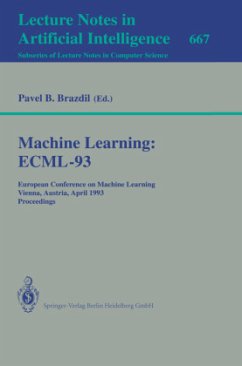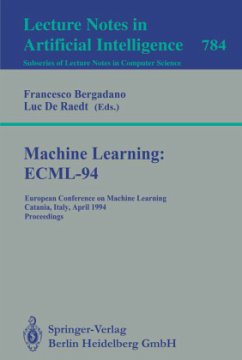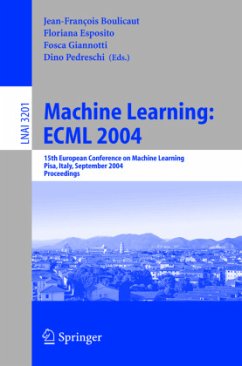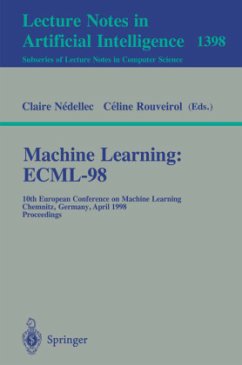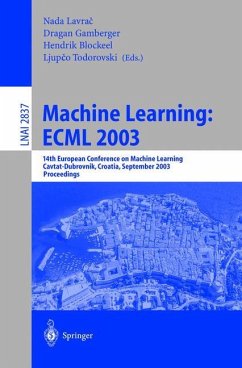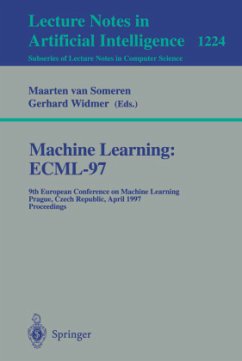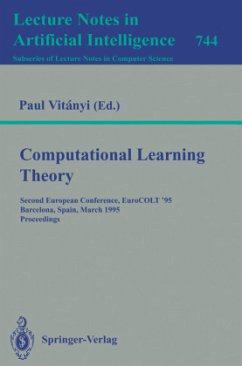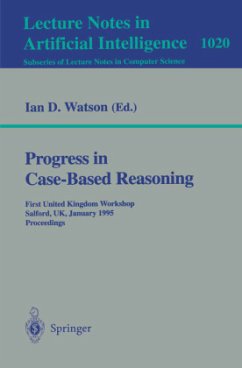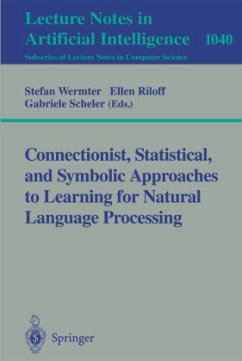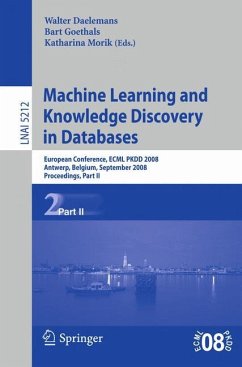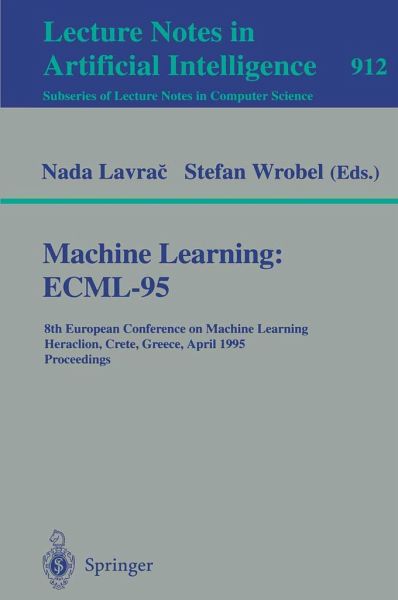
Machine Learning: ECML-95
8th European Conference on Machine Learning, Heraclion, Crete, Greece, April 25 - 27, 1995. Proceedings
Mitarbeit: Lavrac, Nada; Wrobel, Stefan
Versandkostenfrei!
Versandfertig in 1-2 Wochen
39,99 €
inkl. MwSt.

PAYBACK Punkte
20 °P sammeln!
This volume constitutes the proceedings of the Eighth European Conference on Machine Learning ECML-95, held in Heraclion, Crete in April 1995.
Besides four invited papers the volume presents revised versions of 14 long papers and 26 short papers selected from a total of 104 submissions. The papers address all current aspects in the area of machine learning; also logic programming, planning, reasoning, and algorithmic issues are touched upon.
Besides four invited papers the volume presents revised versions of 14 long papers and 26 short papers selected from a total of 104 submissions. The papers address all current aspects in the area of machine learning; also logic programming, planning, reasoning, and algorithmic issues are touched upon.





